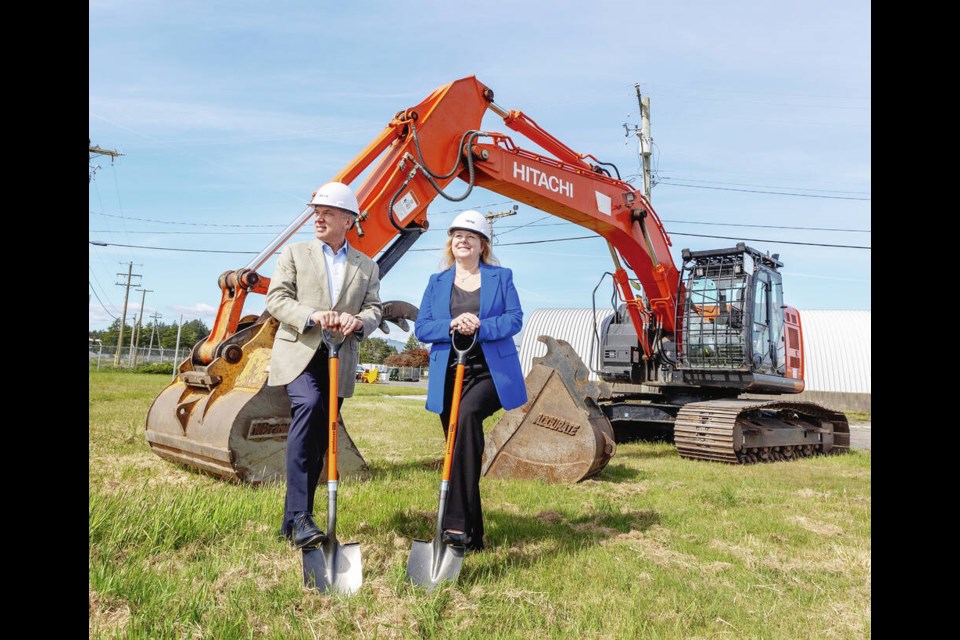A groundbreaking event was held Tuesday for a new air traffic control tower that will rise six storeys above the tarmac to keep pace with the increasing numbers of planes taking off and landing at Victoria International Airport.
The tower, expected to be completed in 2027, will be 27.7 metres tall — several metres taller than the existing air traffic tower, which was built in 1958.
The building, with a total floor area of 792 square metres, will have state-of-the-art technology to safely and efficiently manage growing air traffic demand, according to airport officials.
The new tower will also have better sightlines over the airfield, said Raymond Bohn, president and chief executive of NAV Canada, the private, non-profit agency that manages air traffic across Canada.
Bohn said the new tower will be NAV Canada’s first in Canada built to Leadership in Energy and Environmental Design (LEED) standards and will operate with zero greenhouse gas emissions. He said the new build supports NAV Canada’s net-zero goals by 2050.
A NAV Canada director said the control tower is typically staffed by two to four people, depending on the time of day and volume of daily flights.
Victoria’s airport is considered the 11th busiest in Canada in terms of passenger arrivals and departures. Since 2021, the number of passengers coming through YYJ has been steadily increasing. Last year, more than 1.7 million passengers came through the gates, nearly triple the number in 2021.
Over the first three months of this year, 377,105 passengers have come through YYJ, up 15% from the same period a year ago.
There were more than 108,000 aircraft landings and takeoffs last year, according to the airport’s latest statistics.
The tower’s landscaping is expected to include native plants, natural grasses and wildflowers, although only plants that do not yield fruits or berries have been selected to minimize attraction of birds that could be an aviation safety hazard.
The control tower property will also feature permeable pavers in the parking area to minimize ground water run-off and reduce the risk of flooding.
YYJ’s goal is to become a carbon neutral airport by 2030.
NAV Canada operates 42 control towers around Canada. It earns its revenue from airline and aircraft operators who pay to use its services.




